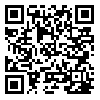Fri, May 2, 2025
| فارسی
Volume 24, Issue 1 (Spring 2018)
IJPCP 2018, 24(1): 16-29 |
Back to browse issues page
Download citation:
BibTeX | RIS | EndNote | Medlars | ProCite | Reference Manager | RefWorks
Send citation to:



BibTeX | RIS | EndNote | Medlars | ProCite | Reference Manager | RefWorks
Send citation to:
Fazaie S, Ashayeri H. The Impact of Music Education on 7-9-Year-Old Children’s Creativity in Tehran. IJPCP 2018; 24 (1) :16-29
URL: http://ijpcp.iums.ac.ir/article-1-2664-en.html
URL: http://ijpcp.iums.ac.ir/article-1-2664-en.html
1- Department of Psychology, Faculty of Humanities and Social Sciences, Science and Research Branch, Islamic Azad University, Tehran, Iran. , E-mail: sfazaie@yahoo.com
2- Department of Rehabilitation Basic Sciences, School of Rehabilitation Sciences, Iran University of Medical Sciences, Tehran, Iran
2- Department of Rehabilitation Basic Sciences, School of Rehabilitation Sciences, Iran University of Medical Sciences, Tehran, Iran
Abstract: (7532 Views)
Objectives The present study investigated the impact of music education on the creativity of 7–9-year-old children in Tehran, Iran.
Methods semi-experimental study comprised of pretest-posttest and control groups. The study participants were 7–9-year-old children from primary schools from 20 regions of Tehran. The sampling method used in this study was based on availability that recruited 20 individuals, who were and randomly selected (n=10 each for the test and control groups). Data were collected by Torrance creativity questionnaire as well as the Wechsler Intelligence Test 4, and analyzed by SPSS software in two descriptive and inferential parts using independent samples t-tests and analysis of covariance tests.
Results The results showed that children had sufficient intelligence to receive music education, which significantly affected the components of children’s creativity.
Conclusion Thus, music education can be taken into consideration as an effective tool for developing creativity in children.
Methods semi-experimental study comprised of pretest-posttest and control groups. The study participants were 7–9-year-old children from primary schools from 20 regions of Tehran. The sampling method used in this study was based on availability that recruited 20 individuals, who were and randomly selected (n=10 each for the test and control groups). Data were collected by Torrance creativity questionnaire as well as the Wechsler Intelligence Test 4, and analyzed by SPSS software in two descriptive and inferential parts using independent samples t-tests and analysis of covariance tests.
Results The results showed that children had sufficient intelligence to receive music education, which significantly affected the components of children’s creativity.
Conclusion Thus, music education can be taken into consideration as an effective tool for developing creativity in children.
Type of Study: Original Research |
Subject:
Psychiatry and Psychology
Received: 2017/02/20 | Accepted: 2017/03/14 | Published: 2018/04/1
Received: 2017/02/20 | Accepted: 2017/03/14 | Published: 2018/04/1
| Rights and permissions | |
 |
This work is licensed under a Creative Commons Attribution-NonCommercial 4.0 International License. |






